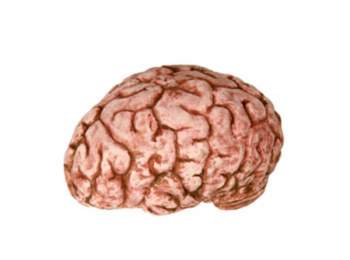
Traumatic Brain Injuries

Traumatic brain injuries are classified as the most severe of the three types of brain injuries; additional brain injuries include minor brain injury and intermediate brain injury. Unlike minor and intermediate brain injury, traumatic brain injury (TBI) includes the most potentially-severe consequences, ranging from spinal damage and loss of motor skills to paralysis and quadriplegia.
What is Traumatic Brain Injury (TBI)?
Traumatic brain injury, to which can also be referred as intracranial injury, is a damage sustained to the brain as a result of impact, force, or trauma; however, the classification of physical, traumatic brain injury is kept separate from psychological, traumatic brain injury – while symptoms and signs might overlap, both the immediate treatment of both types of injuries require vastly different care.
The Human Brain
The human brain, which acts in concert with the spinal cord, is the two components of the human central nervous system – responsible for the operations, management, and transmission of neurological commands, sensations, and responses.
Damage to the brain can contribute to a multitude of medical maladies, and due to the innate complexity of the neurological structure of the central nervous system, traumatic brain injuries can result in tragic results. The neurological connectors shared by the spinal cord and the base of the brain serve as a communication center, which used by the human body to perform tasks. Any damage to this delicate area resulting from traumatic brain injury can not only impair one’s ability, but their quality of life, as well.
Signs and Symptoms Resulting from Traumatic Brain Injury
Comas are not uncommon subsequent to sustaining a traumatic brain injury; trauma to the brain can cause long-term loss of consciousness – while less severe types of brain injury can result in concussions, comas occur more frequently in the event of a TBI
Due to rapid shifting and movement of the brain subsequent to traumatic brain injury, contusions – also known as brain hemorrhaging – can result from a variety of these types of brain injuries
Loss of motor skills as a result of traumatic brain injury are not uncommon; forceful and/or blunt trauma to the brain can sever and damage neurological wiring that controls movement and speech
Spasms and seizures are a frequent result of traumatic brain injury; forceful impact sustained by the human brain can result in faulty neurological responses and blackouts
Paralysis and quadriplegia are amongst the most severe consequences of traumatic brain injury; upon severance and damage sustained by the brain and spinal cord, the human central nervous system cannot send neurological signals – this results in paralysis
Death can result from traumatic brain injury as a result of severe trauma sustained by the brain
Traumatic Brain Injury Recourse
Sustaining a traumatic brain injury can alter an individual’s quality of life, oftentimes resulting in prolonged therapy and/or medical services. In the event that an individual has suffered a traumatic brain injury, an attorney specializing in personal injury should be contacted. This type of attorney can lend their respective legal expertise in the assessment of not only the injury sustained as a result of the traumatic brain injury, but also pertinent case details.
NEXT: Whiplash





















